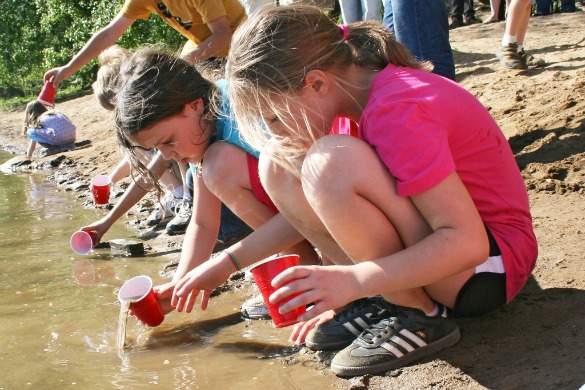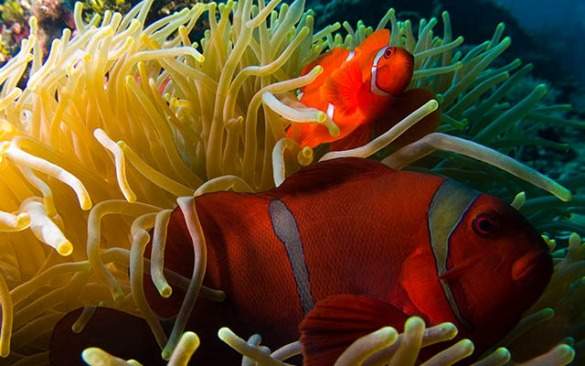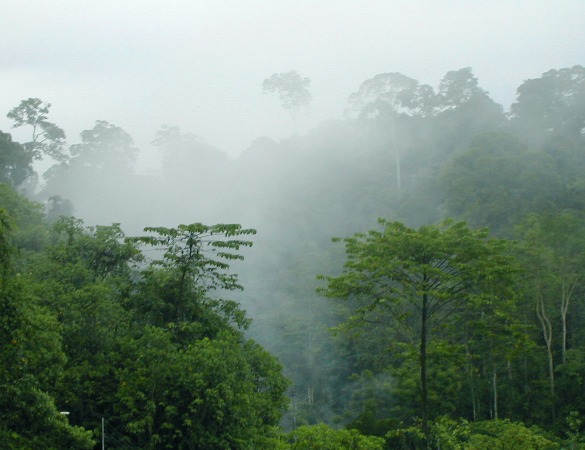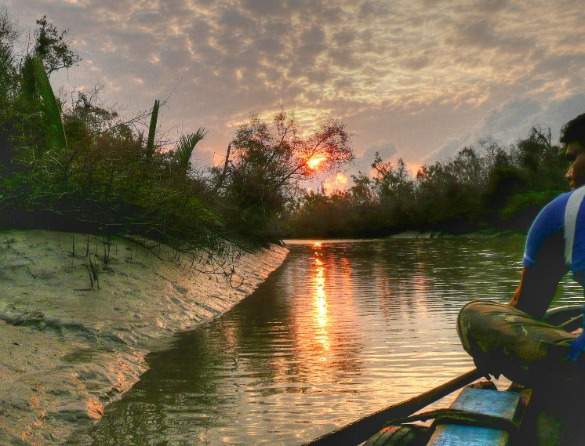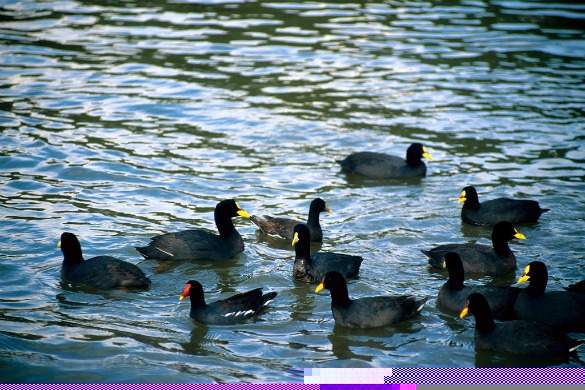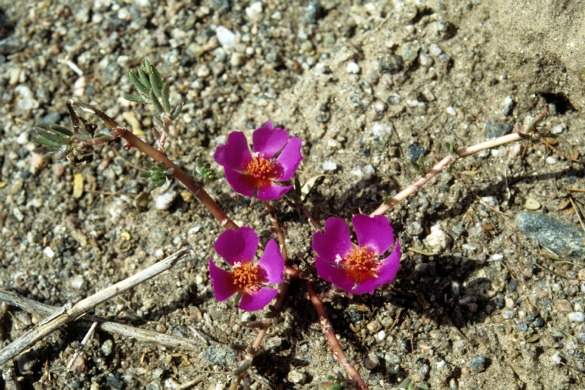When people think of working or volunteering abroad, several options come to mind. Perhaps the most common are teaching English or helping out at an orphanage. Other jobs such as bartending or waitressing are popular because, unless you are planning to cater in a five star restaurant, you won’t need that much experience. However, there are other opportunities to work and/or volunteer abroad that don’t require previous qualifications.
Working with wildlife is becoming increasingly popular and contrary to what you might expect, you don’t need formal training to do so. The programs listed below will accept volunteers with no experience and provide them the training they need. Skilled supervisors are available onsite and while previous experience and/or training can be beneficial, it is not at all a requirement. If you’re wondering how to get started, here are seven different ways you can begin working with wildlife abroad:
Teaching – Environmental Education/Community Outreach
Educating others about wildlife and its conservation can take various forms. On the one hand, you can teach local community members about ways in which they can share a habitat with the surrounding flora and fauna. Specifically, sustainable cohabitation methods should be addressed, so that the wildlife can coexist with humans on a long-term basis. On a greater scale, you can take part in a regional, national or even international protection plan.
Check out the North American Association for Environmental Education for a more extensive definition of what environmental education involves. The website also provides a great overview of how you can get involved in promoting what they call “environmental literacy.” The Association provides pre-service education as well as a higher education directory and professional certifications.
Through NGOs such as Frontier, you could soon find yourself teaching in a primary school in Madagascar, or helping to launch an environmental education project at a wildlife center in a small Costa Rican community. This particular trip, for example, begins with several days where you attend orientation and introductions into the language, life, culture and projects in Costa Rica. Subsequently, the environmental education work involves local community groups, especially children, and other visitors to the wildlife center. For example, you might be taking visitors on tours to explain the center’s goals. Since visitors provide an important source of income (through donations), you may also form part of fundraising initiatives. Those who speak Spanish might even be giving talks and presentations at fundraising events. Overall, the center’s education scheme is designed to help change the opinion of the local communities towards wildlife, encouraging improved attitudes to animal welfare and higher levels of awareness of the value of conserving of these important and threatened animals. A four week placement is priced at € 1595 (about US $2160) and before you go, you receive pre-departure support, travel/medical/equipment advice, a discounted medical kit, and a Free Frontier T-shirt. In-country, accommodation (either with a friendly Costa Rican host, within the volunteer house or in the Ranger’s House), food (3 meals a day, including Costa Rican specialties), local orientation, project training, in-country emergency support and a 24-hour international HQ backup is included in the price as well.
Marine Conservation (including Coral Reef Conservation)
Marine Conservation can be defined as the protection and preservation of the ecosystems that are present in oceans and seas. Not only does it involve limiting the human-caused damage that has also been done, but it also focuses on restoring precisely those already-damaged ecosystems. Naturally, the ecosystem in question applies not only to plants, but also to animal species.
Through Projects Abroad, for example, you could volunteer conserving sea turtles in Mexico. Another option would be to help conserve the coral reefs and mangrove swamps on the coast of Thailand. Many organizations, including Projects Abroad, will start the volunteer project with diving courses. The description of the Thailand project above, for example notes that “the first thing that you’ll be doing is learning how to scuba dive. This allows you to dive to depths of 30m and participate fully in the underwater conservation work. If you have the advanced scuba diving qualification already, you can start on the underwater reef research work straight away and choose to gain the next qualification as a Rescue Diver.”
The work on the actual project will vary depending on the time of year, weather conditions and number of volunteers. While the research may involve counting and observing species, there are also salvage dives, collecting debris and trash from the reef. You could, for example, find yourself responsible for removing fishing lines or helping fish get out from under traps. Also be prepared to take part in cleaning the beaches each week. Such tasks are essential for guaranteeing that litter stays away from the water. As such, you help protect the entire ecosystem!
Volunteers typically work five days per week. Be aware that the work can be physically demanding, and that the days can often start early to avoid the midday sun. The minimum stay is currently set at two weeks and priced at £ 1745 (about US $ 2761). It includes accommodation (basic wooden bungalows just off the beach, each with a private bathroom), 3 meals/day, 24-hour support and medical insurance.
In addition to Projects Abroad, another organization to consider would be REEF, whose mission is to educate and enlist divers in the conservation of marine habitats, is accomplished primarily through the Volunteer Survey Project.
Rainforest Expeditions and Conservation
While marine conservation applies to oceans and seas, rainforest conservation obviously applies to rainforests. Frontier, for example, provides opportunities for you to take part in an expedition to Madagascar, where under the guidance of a field expert you’ll learn how to lead your own expedition, including camp craft, navigation, leadership, and field safety. Along the way, you’ll pass through some of the most dramatic landscapes that the world has to offer, where animals never before seen and communities almost entirely cut off from the rest of the world live.
The organization also provides further opportunities to track lions and tigers, or bottle-feed endangered pandas at a sanctuary in China. Through Projects Abroad, you could also take part in the conservation of the Amazon rainforest in Peru or tropical dry forest conservation in Costa Rica. In the latter, for example, current projects include wildlife inventories with a full mammal census of the national park using automatic-sensor cameras placed in strategic areas. You may also find yourself investigating the hundreds of species of butterfly in the park, identifying and displaying samples of each species, as well as capturing and identifying the many species of bats in the area. Other work includes reforestation of previously affected areas inside and outside the park, as well as working to restore the two main tourist caves (future projects will include cave mapping, mineral studies, a cave wildlife census and much more).
This particular project is available for two weeks minimum. Although you will gain a valuable cultural insight and work intensely on a variety of conservation activities please be aware that you may not be able to make the same impact as someone volunteering for a longer period. The two-week stay, for example, is priced at £ 1445 (about US $ 2287). This price includes accommodation, 3 meals/day, airport-pick, 24-hour support and travel insurance.
National Park Conservation
Rainforests or even marine environments can be part of National Parks, thus there may be some overlapping. However, if you volunteer in a National Park, you almost always can be assured that there is a specialized team working behind the scenes already. It is these skilled workers that you should try to work with to learn from their expertise.
In Kenya, for example, you can volunteer to do bush patrols to monitor animals for their safety from poachers on daily game drives. This patrol helps to identify any injured animal or orphan, which can easily die for lack of treatment and tender care. Volunteers take record of such incidences and report the case to the Kenya Wildlife Service, which is in charge of all the wildlife in Kenya.
On the same trip, you can also find yourself in de-snaring, that is, removing wire snares or traps that poachers set across animal tracks to capture and kill wildlife. The poachers set the wire strategically with the aim of trapping the animal by the neck so as to suffocate it. This is a very cruel method as it is a slow and agonizing death for an animal. For this reason volunteers search for the snares at poacher’s hot spots and remove them.
A two-week placement is currently priced at US$ 1399, and includes airport pick-up and drop-off, all meals and accommodation during your stay, as well as full support from your coordinator for the time of the trip. Note that a $25 visa fee, as well as any necessary vaccinations, is not included. Unlike other projects, this one is available year-round and has a flexible placement length.
Caring for Endangered Species/Animal Rehabilitation Centers
Animals in rehabilitation centers can be orphaned and/or injured. As such, they need care and nourishment in order to be able to return to their natural environment. At these centers, volunteers can work with wildlife first-hand, learning from the skilled workers that are present at the site.
For example, you could work directly with a range of endangered species in Costa Rica. Here, rescue centers are set up to provide a sanctuary for animals that have little or no hope of ever being returned to their natural forest habitat because of the appalling levels of mistreatment to which they have been exposed by humans. Often the animals have been starved and subjected to high levels of stress – once at the centers they are given superb care and attention in an effort to rebuild their fragile lives. As a volunteer, you can see the health of an animal improve from one day to the next.
You will always be assisted by staff as you help feed and take care of a variety of animals. Those who love wildcats will find a range to choose from, including cougars, jaguars or ocelots. Bird aficionados, in turn, will enjoy working with parrots, toucans and scarlet macaws. Further endangered species that you might find yourself protecting include crocodiles, monkeys, snakes, wild pigs and/or tapirs. This may involve preparing the food, feeding the animals, cleaning the enclosures, as well as building and repairing the enclosures and feeding platforms.
There are monthly departure dates and the minimum stay is one month. Costs are priced at £1049 (US $ 1660) per 4 weeks, which includes airport pick-up, accommodation, all meals, project training, in-country emergency support, and 24-hour international HQ backup. During the first few days, starting on Monday at 9:00am, you will attend comprehensive orientation sessions covering essential topics such as culture, language, banks and money, transport, places to see, safety precautions and work ethics in Costa Rica. The next day (Tuesday), you will transfer to the project site, where you will live with a local family in a semi-private room (two sharing) with a shared bathroom. Note that once you have finished the project, you will be expected to organize your own transport back to San José airport (about $25 taxi ride from the project site).
Research/Species Observation of Animals
When working with wildlife, research is not limited to an academic setting and a classroom. Quite the contrary, you will be observing species first hand. The first option is to focus on animals.
Responsible Travel, for example, offers opportunities for you to track giant pandas in China. The itinerary allows unique opportunities to track and view wild pandas in their natural habitat, as well as meeting with traditional rural communities, still practicing ancient agricultural methods, and meeting with individuals fighting to ensure the survival of wilderness in China.
I-to-I, on the other hand, will allow you to volunteer with lion preservation and monitoring in South Africa. On this project, you will learn skills such as tracking collared lions using radio telemetry, navigation techniques, using a GPS, animal identification and gain an awareness of the fauna and flora in the area. Working hours are flexible and can be anything from 8-9 hours/day, 5-7 days/week. The minimum stay is two weeks, six weeks maximum. Prices are set at £1199.00 (about US$ 1897) for 2 weeks, £400.00 (US $633) for every week thereafter. This includes accommodation (shared dormitory room in volunteer house), food (self-catering, food provided), airport pick-up, in-country orientation and a pre-departure helpdesk, local in-country team and 24-hour emergency support.
Research/Species Observation of Biodiversity
The success of conservation projects strongly relies on having a count of which species are present in which location. This not only allows future initiatives to be successful, but also enables existing programs to be more effective. Species observation of biodiversity will involve detailed species lists, with early starts and late finishes often being vital for the best results.
GVI, for example, offers opportunities for volunteers to travel to Ecuador to research rare species, help the conservation of the rainforest and volunteer on community projects on this remote and pioneering Amazon expedition in South America. During this project, you will spend a great part of your time collecting and collating scientific data. Since the expedition is in a remote location, all volunteers participate in first aid training and team-building activities. It must be stressed that volunteers will not have the opportunity to be alone at any time in the forest, as it is a harsh environment in which you can get lost very easily. You can read more about the daily life on the expedition on this blog.
While there are no formal requirements in terms of previous volunteer experience, note that all volunteers must be strong swimmers who are able to swim 300m. Knowing Spanish is not essential for this expedition, but participants will benefit much more by knowing some basic phrases, as you can interact with the community to immerse yourself in the culture of the area.
A 5-week stay is currently priced at £1345 ($US 2128). This includes all food and accommodation, airport transfers, in-country transportation to rainforest base, expedition equipment and training, ‘Introduction to TEFL’ training, overnight satellite camps in the forest to explore the reserve, a four-day Amazonian adventure exploration side trip, an emergency first aid course and 24-hour in-country support and a 24-hour emergency phone line.
Learn more about working with animals while you travel:
- How to Volunteer at an Animal Shelter Abroad
- The Dog Lover’s Guide to Global Volunteer Work
- Seven Endangered Species You Can Find Outside a Zoo
- Earth 911
- Volunteer Match
- Volunteer Guide
- National Wildlife Foundation
- Wildlife Volunteer
- Defenders
- Responsible Travel
- i-to-i
- Real Gap
Photos: woodleywonderworks, marinebio.org, angela7dreams, joiseyshowaa, audreyjm529, Ostrosky Photos, Ostrosky Photos.
